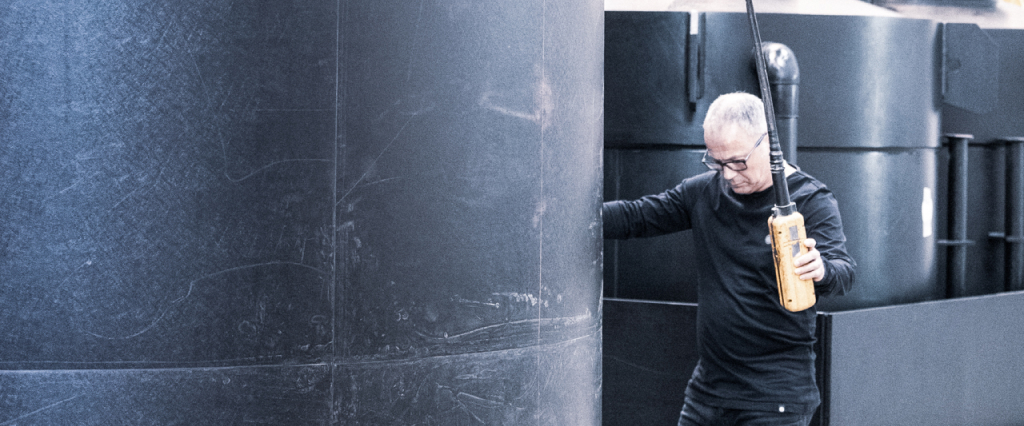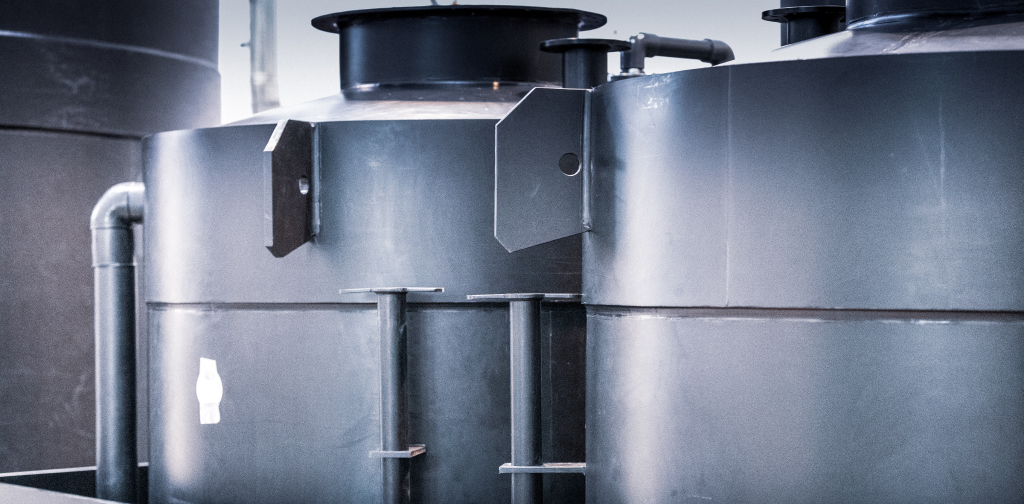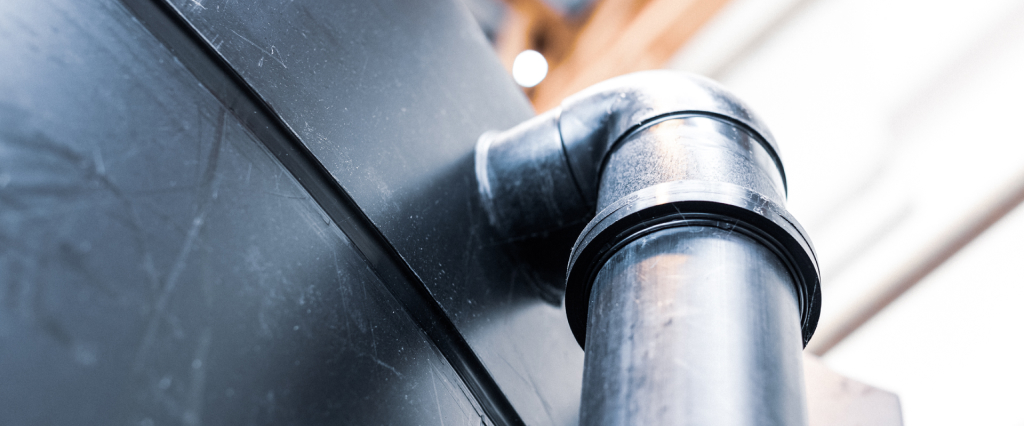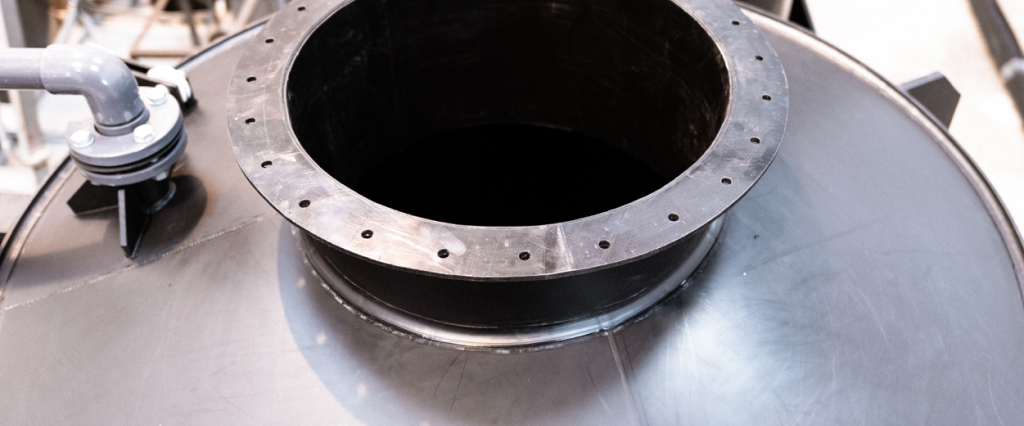We manufacture and sell a diverse range of plastic tanks crafted from superior thermoplastic materials such as Polypropylene, PVDF and HDPE.
We ensure that every liquid storage tank delivers exceptional durability, chemical resistance, and longevity. We take pride in delivering top-quality liquid storage solutions tailored to diverse industrial needs, with our SAFEBULK® tank and bund systems amongst the best in the business.
Do you have a question about our water tanks or chemical storage tanks?
Feel free to contact us today and we’ll be happy to answer any questions you have about our products.

Polyethylene tanks are a vital component of various industries. The tanks are crafted from a high-density polymer called polyethylene. This versatile material is a type of thermoplastic known for its exceptional durability and resistance to corrosive substances. Polyethylene is created through the polymerisation of ethylene, a gas derived from natural gas and crude oil.

During the manufacturing process, polyethylene molecules are bonded together to form a robust and resilient structure. This unique molecular arrangement provides polyethylene tanks with remarkable strength and chemical resistance, making them ideal for storing a wide range of liquids, chemicals, and even food products.
Polyethylene tanks are renowned for their lightweight nature, making transportation and installation relatively easy. Furthermore, polyethylene is resistant to rust, corrosion, and most chemicals, ensuring the integrity of the stored materials. These qualities make them a great choice for chemical storage, food processing as well as static water tanks.

Polyethylene tanks are highly resistant to a wide range of chemicals, acids, and alkalis, ensuring the safe storage of corrosive substances.


Polyethylene is a robust material, providing tanks with exceptional strength and impact resistance, reducing the risk of damage and leaks. This makes them a great choice to be used as chemical tanks.



The tanks are relatively lightweight, making them easy to transport, handle, and install compared to metal or concrete alternatives.


Unlike metal tanks, polyethylene tanks do not rust or corrode, ensuring longevity and low maintenance requirements. This makes them an excellent choice for general chemical storage or for storing process waters.



Polyethylene tanks can be manufactured in various shapes and sizes, allowing for customisation to fit specific space and capacity requirements.



Polyethylene tanks are generally more affordable than tanks made from other materials, providing a cost-effective solution for liquid storage needs.


Polyethylene tanks have excellent thermal properties, helping to maintain the temperature of the stored liquids, which is especially beneficial for certain chemical applications.


The smooth surface of polyethylene tanks is easy to clean and sterilise, ensuring hygienic storage conditions for food-grade or pharmaceutical liquids.



Polyethylene is recyclable, making it an environmentally conscious choice for those looking to reduce their carbon footprint.
Polypropylene is a highly versatile thermoplastic polymer, derived from propylene monomers. This material is used in industrial settings owing to its outstanding chemical resistance and robustness.


Niplast Commercial Polypropylene tanks are crafted from specific gauge sheets extruded from polypropylene polymer and certain additives for example UV stabilisers. The resultant tanks boast the highest rated welding factor in the design code, reducing the risk of leaks and ensuring prolonged durability. Their high specific gravity ratings demonstrate their ability to effectively withstand the hydrostatic pressures from stored liquids.
One of the primary characteristics of polypropylene is its exceptional resistance to a wide array of chemicals, including acids, bases, effluents and slurries. Furthermore, it can also be used as a water tank material of construction.
This chemical inertness renders polypropylene tanks perfect for securely storing corrosive substances. Furthermore, polypropylene is light yet robust, making these tanks easy to handle and install while ensuring dependable performance.
Polypropylene tanks are also renowned for their high-temperature resistance, enabling them to endure various temperatures without compromising structural integrity. This attribute makes them suitable for applications where temperature fluctuations are a concern.
Moreover, polypropylene boasts UV resistance, allowing these tanks to be utilised outdoors without degradation from sunlight exposure. This resistance to ultraviolet rays ensures the tanks maintain their durability and reliability in many areas, even in tough outdoor environments. That’s why it is often the tank of choice for rainwater harvesting, in addition to storing corrosive industrial chemicals.


Polypropylene tanks are highly resistant to a wide range of chemicals, acids, and alkalis, making them ideal for storing corrosive substances safely.


Unlike metal tanks, polypropylene tanks do not corrode, ensuring long-term durability and structural integrity.


Polypropylene is a lightweight material, making these tanks easy to handle, transport, and install, reducing labour and equipment costs.


Polypropylene tanks can withstand high temperatures without deforming or losing their structural strength, making them suitable for various industrial processes.


Polypropylene tanks are durable and resistant, ensuring they can withstand accidental knocks or bumps without damage.


Polypropylene tanks are UV stabilised, allowing them to be used outdoors without degradation caused by exposure to sunlight.


These tanks require minimal maintenance due to their resistance to corrosion, rust, and chemical degradation, reducing ongoing costs.


Polypropylene tanks are generally more affordable than tanks made from other materials, providing cost-effective solutions for various industries. Plus they are available in various capacities, so can hold as many litres as required.


Polypropylene is a recyclable material, making these tanks an environmentally friendly choice for sustainable businesses


Due to their resistance to chemical degradation and environmental factors, polypropylene tanks have a long service life, providing reliable storage over the years.


High-density polyethylene (HDPE) tanks are engineered from a robust thermoplastic polymer making them highly durable and versatile for various storage applications, including wastewater and chemicals. HDPE is created through a polymerisation process of ethylene, a petrochemical derived from natural gas or crude oil.
HDPE tanks are renowned for their exceptional strength-to-density ratio, providing remarkable structural integrity while remaining lightweight. The material is resistant to chemicals, corrosion, and impact, ensuring the tanks can withstand harsh industrial environments. This makes them ideal for storing a wide range of chemicals, acids, and corrosive substances safely. Thus they are often referred to as heavy-duty tanks.
Additionally, HDPE tanks possess excellent UV resistance, enabling them to endure prolonged exposure to sunlight without degradation. HDPE tanks are also renowned for their smooth, non-porous surface, which prevents the growth of bacteria and fungi, ensuring the stored contents remain uncontaminated.
Furthermore, HDPE tanks are eco-friendly as they are recyclable, reducing their environmental impact. The tanks are also cost-effective due to their long lifespan, low maintenance requirements, and the ability to be manufactured in various sizes and shapes to suit specific storage needs.



HDPE tanks exhibit exceptional resistance to a wide array of chemicals and corrosive substances, ensuring the safe storage of various materials.



Renowned for their robustness, HDPE tanks withstand impact and harsh environments, making them suitable for industrial applications.



Despite their strength, HDPE tanks are lightweight, facilitating easy handling, transportation, and installation compared to tanks made from other materials.



HDPE possesses excellent resistance to ultraviolet (UV) rays, allowing these tanks to be used outdoors without degradation or loss of structural integrity.


HDPE tanks have a smooth, non-porous surface that inhibits the growth of bacteria, fungi, and algae.


HDPE tanks can be manufactured in various sizes, shapes, and configurations, enabling customisation to fit specific space and storage requirements.


Due to their corrosion resistance and longevity, HDPE tanks require minimal maintenance, reducing operational costs over their lifespan.



HDPE is recyclable, making these tanks eco-friendly. They can be recycled after use, lessening their environmental impact.



HDPE tanks offer excellent value for money due to their long lifespan, low maintenance needs, and competitive initial costs in comparison to tanks made from other materials.



HDPE tanks find applications in diverse industries, including chemical processing, agriculture, water treatment (water storage tanks), and manufacturing, highlighting their adaptability to various uses.
Whether you are looking for a high-quality industrial water storage tank or a large chemical storage tank, Niplast manufactures and delivers a large range of tanks. We manufacture and sell high-quality tanks guaranteed to provide you with years of trouble-free service! Contact us today to find out more or to help you choose a suitable product.